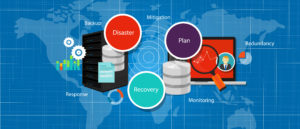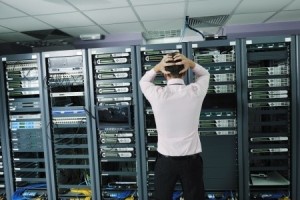
Creating a clear disaster recovery plan for your business can help prevent permanent loss of your most vital information and data
Believe it or not, disasters are a lot more common in the workplace than you’d expect. Not to mention that they can also happen at the most unexpected times. Even for the companies which are always prepared for the worst, some incidents are beyond their control. For example, due to the location of the workplace, what if the business was impacted by a natural disaster, such as tsunami or hurricane? As another example, what if there was a fire in the office which forced everyone to evacuate? However, that’s not to say your business can’t recover from these disasters. In fact, this is where a backup disaster recovery plan comes into play. Whether the disaster was a careless mistake or a weather related incident, you need to have a plan for recovering. Overall, what’s the best step forward in creating your plan, and what should you include? Here are a few things to consider.
#1. Do You Have Multiple Backup Options?
As a part of your disaster recovery plan, it’s essential you have multiple backup options at your disposal. After all, what if your only recovery options fails, and you don’t have a way to access the stored data? For example, let’s say you had purchased a USB flash drive for securing your info. First of all, there’s no doubt that it’s a great device for keeping your data safe. Not to mention the amount of gigabytes the more expensive ones can carry is great. However, these devices aren’t always reliable, either. It’s easy to misplace them due to their size, and they can get stolen easily as well. Some flash drives also have a very short life span, and may end up malfunctioning at the worst time. As another backup contingency plan, is your data stored via cloud computing? One of the best things about storing your information this way, is that it’s accessible from any device that has internet. That’s not to say you shouldn’t purchase a flash drive, but cloud computing is exactly why you need multiple backup options. In the case of a power outage or even a ransomware attack, for example, none of your data’s affected. Instead of being stored via your computer’s hard drive, it’s stored on the internet.
#2. Are You Prepared For Any Disaster?
Having multiple backup options is one thing, but you need to know how to handle each incident in the workplace as well. Most disasters that occur are unpredictable, and each one should be dealt with differently. As an example, the way you would recover from a natural disaster, is different than how you’d recover from a power outage. For the former, you might want to have multiple organizations set up, as a way to easily transfer your data. When dealing with a temporary power outage, however, there’s no need to “recover” if you already have your data stored away, since you haven’t lost anything. Cloud computing practically renders your data untouchable in the event of a power failure.
#3. How Thorough is Your Plan?
Multiple backup options aside, is your disaster recovery plan foolproof? Have you tested it out recently? Will you need to make any changes down the road? These are some questions to ask yourself. With the latter question, especially, it’s important to remember that nothing is ever set in stone. Even if you have an excellent disaster recovery plan, keeping it updated is essential. After all, what if you don’t have to use your plan until years down the road, but it’s no longer as effective as it would have been? Test it out on a regular basis, and make the necessary changes.
For more information about creating a successful backup disaster recovery plan, feel free to contact us today at SystemsNet. We look forward to hearing from you.
